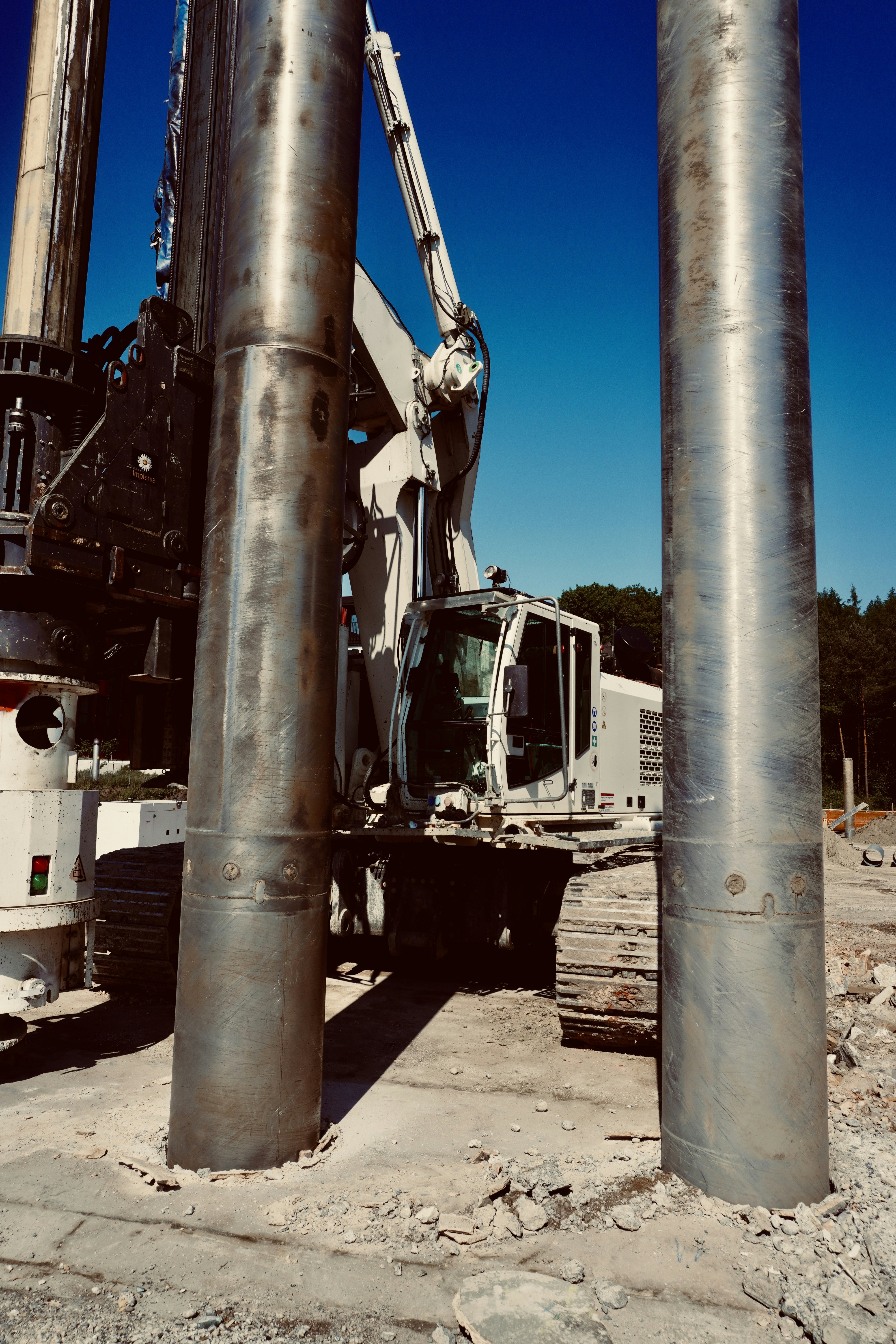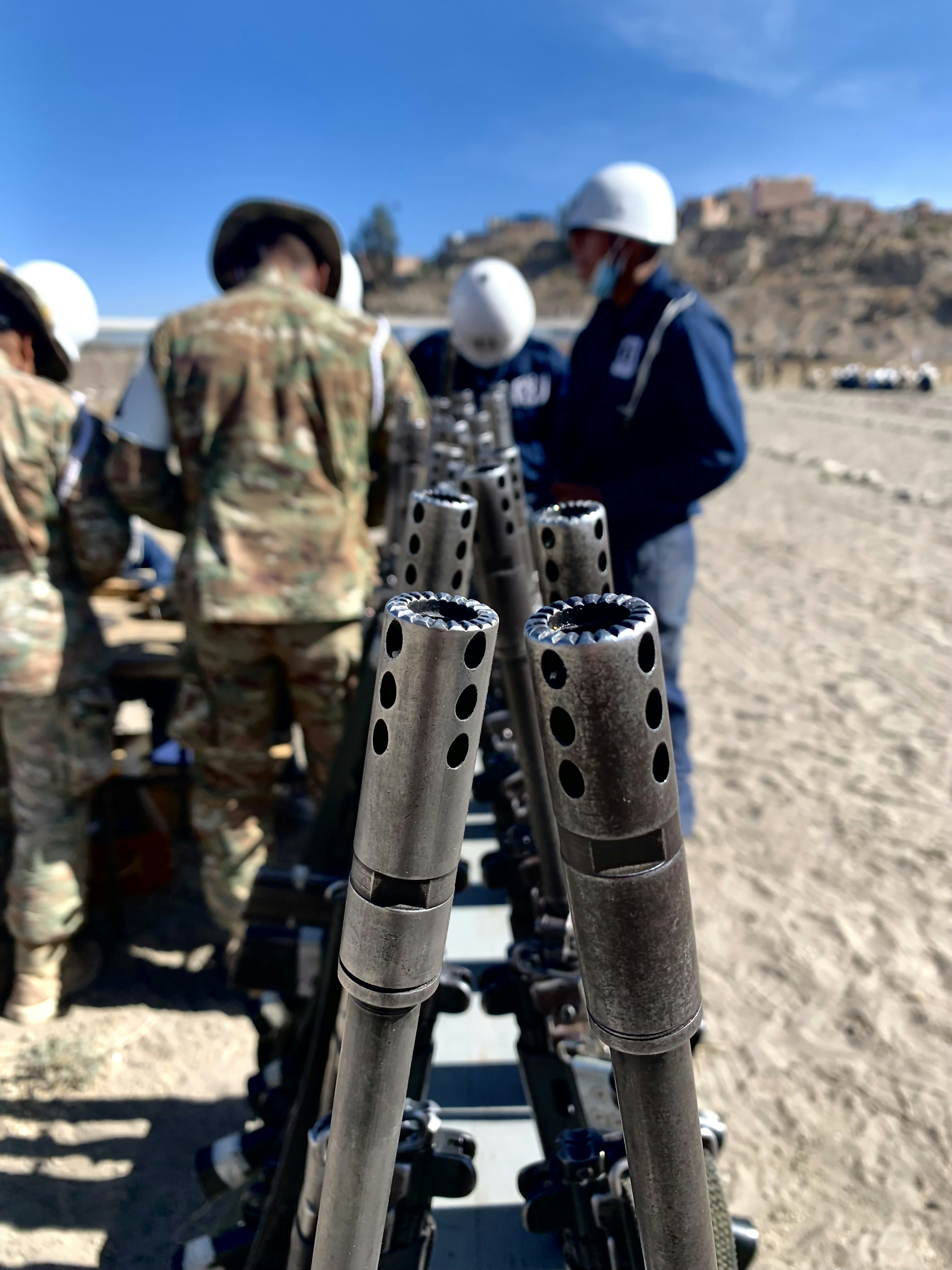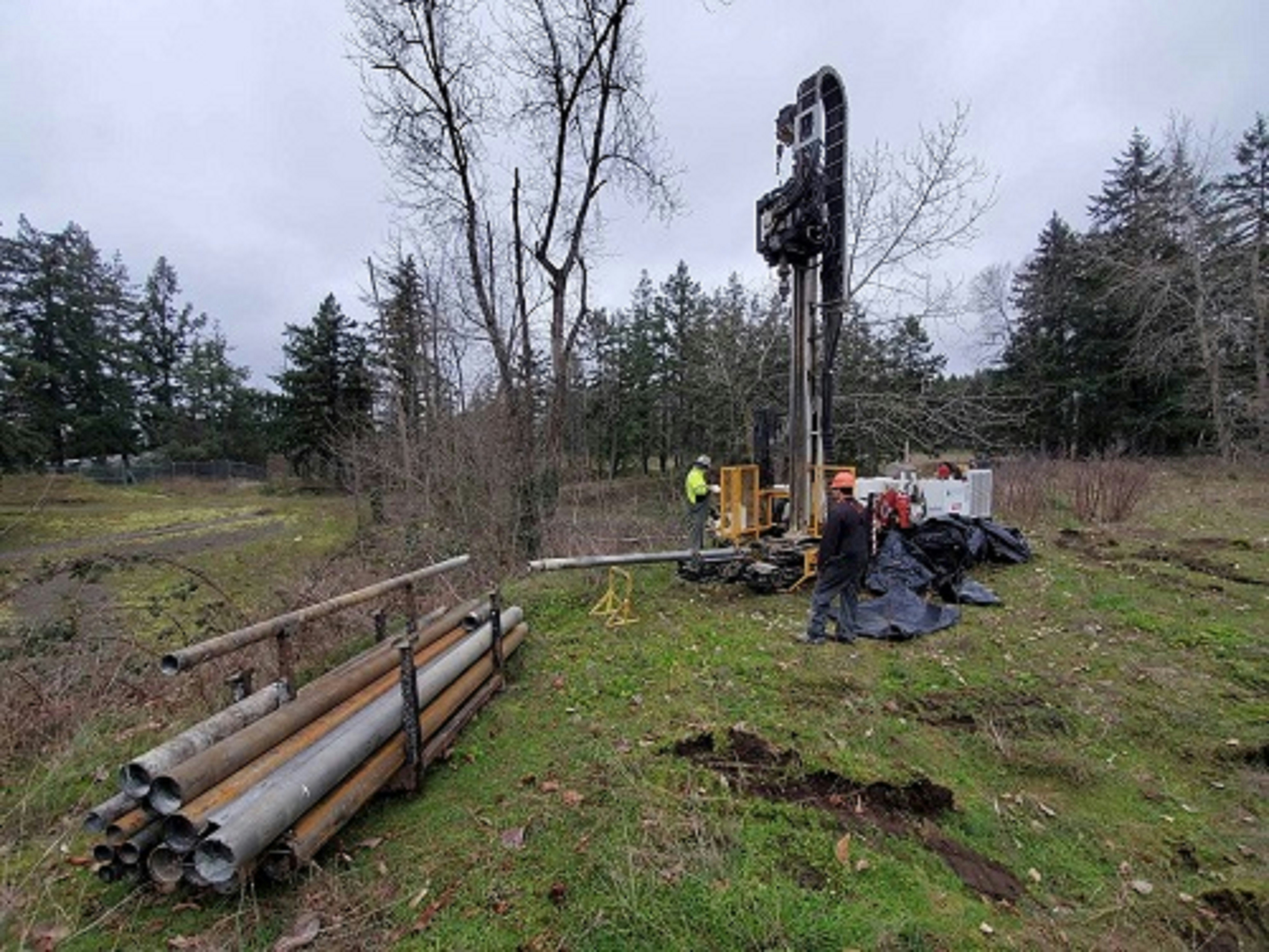Introduction
Are you looking to revolutionize your drilling operations? Look no further than a casing drilling system. This innovative technology combines the functions of drilling and casing, streamlining the process and providing numerous benefits. From increased efficiency to improved accuracy, a casing drilling system is a game-changer in the industry.
What is a Casing Drilling System?
A casing drilling system integrates the drill and casing into one seamless operation, eliminating the need for conventional drilling methods and then inserting casing separately. This all-in-one approach saves time, reduces costs, and minimizes environmental impact.
In addition, casing drilling systems offer greater stability and control during the drilling process. Integrating the casing with the drill reduces the risk of hole deviation or collapse, resulting in a smoother and more efficient operation. This enhanced stability also contributes to improved safety measures on the drilling site, reducing the potential for accidents or equipment malfunctions.
Advantages of Using Casing Drilling Systems
Casing drilling systems offer a significant advancement in well construction, combining drilling and casing installation into a single operation. This innovative approach delivers numerous benefits:
- Enhanced Wellbore Stability: By eliminating the need for a separate casing run, casing drilling systems reduce the risk of wellbore collapse during the drilling process.
- Minimized Formation Damage: Since the wellbore remains protected by the casing as drilling progresses, formation damage from drilling fluids is significantly reduced.
- Improved Well Integrity: The single-trip casing installation ensures a stronger and more reliable wellbore, enhancing overall well integrity.
- Faster Completion Times: Combining drilling and casing into one operation leads to faster well completion times, saving time and resources.
- Improved Safety: With fewer trips required downhole, casing drilling systems minimize exposure to potential hazards, promoting a safer working environment.
- Reduced Environmental Impact: Casing drilling systems protect the surrounding environment by minimizing the need for multiple casing runs and reducing the risk of drilling fluid and cement contamination. This approach can also save costs by avoiding potential environmental cleanup expenses.
Casing drilling systems represent a significant step in well construction, offering a more efficient, safer, and environmentally friendly approach to well development.
Key Components of Casing Drilling Systems
Casing drilling systems offer a revolutionary approach to well construction, allowing for simultaneous drilling and casing installation. This translates to faster completion times, reduced risks, and improved wellbore stability. To achieve this efficiency, casing drilling systems rely on several key components working in unison:
- Drill Bit: This specialized bit cuts through rock formations, creating the path for the casing. Its design and material selection are crucial for optimal performance and lifespan, ensuring durability and precise hole creation.
- Hammer Drill: Unlike conventional drilling, casing drilling utilizes a hammer drill to deliver powerful blows to the bit. This hammering action assists in breaking through tough formations that a standard rotary drill might struggle with.
- Auxiliary Tools: Various tools are vital in maximizing casing drilling efficiency beyond the core components. These may include circulation systems for removing drilled cuttings, downhole motors for generating additional rotation, and wellbore cleaning tools to maintain a clear path for casing advancement.
By working together, these components enable casing drilling systems to create wells faster and more efficiently, ultimately leading to significant cost savings and improved wellbore integrity.
Understanding Casing Drilling Systems
Casing drilling systems are a revolutionary method that combines the casing and drilling processes into one seamless operation. By using a drill bit attached to the end of the casing string, operators can drill and case simultaneously, eliminating the need for multiple trips in and out of the hole.
How Casing Drilling Systems Work
The casing drilling system utilizes a specialized drill bit attached to the bottom of the casing string. As the casing is rotated and pushed into the ground, the drill bit cuts through rock formations, allowing for simultaneous drilling and casing. This innovative approach saves time and reduces operational costs.
The drill bit used in casing drilling systems has various types to accommodate different ground conditions. For softer formations, a polycrystalline diamond compact (PDC) bit may be used, while harder formations may require a tricone bit. The versatility of these drill bits allows for efficient drilling through a wide range of geological formations, making casing drilling systems suitable for various projects.
Different Types of Drill Bits for Casing Drilling Systems
There are various types of drill bits designed specifically for use with casing drilling systems. These include roller cone bits, polycrystalline diamond compact (PDC), and diamond core bits. Each type has its unique advantages depending on the specific geological conditions.
In addition to the various types of drill bits mentioned, specialized hammer drill bits are also essential for casing drilling systems. These hammer drill bits are designed to deliver high-impact blows, allowing for efficient penetration through hard rock formations. Using hammer drill bits can significantly increase the drilling speed and overall productivity of casing drilling operations, especially in challenging geological conditions where conventional drill bits may struggle to make progress.
Importance of Hammer Drills in Casing Drilling Systems
Hammer drills are essential in casing drilling systems, offering several advantages over conventional rotary drilling methods. Here's how they contribute to a successful drilling operation:
- Enhanced Penetration Through Hard Rock: Hammer drills deliver impactful blows to break through tough rock formations. This percussive action significantly improves drilling efficiency, particularly in challenging geological conditions where rotary drilling methods may falter.
- Reduced Risk of Sticking: Hammer drills minimize the risk of getting stuck downhole by creating a more efficient drilling process. This is crucial in deep or intricate wells, where any delay can incur significant costs.
- Preserved Equipment Life: Hammer drills' percussive action reduces wear and tear on drilling equipment compared to rotary methods. This translates to cost savings on repairs and replacements, extending the lifespan of your drilling machinery.
Hammer drills are powerful assets in casing drilling systems. They ensure efficient penetration, minimize downtime, and promote equipment longevity. Their ability to conquer tough rock formations makes them a valuable tool for any drilling operation.
Choosing the Right Drill Bit

When selecting drill bits for casing drilling systems, it's important to consider factors such as the type of rock formation, desired penetration rate, and bit durability. Teamwhole DTH bits offer numerous benefits, including high drilling efficiency, long lifespan, and excellent performance in various geological conditions. Additionally, these drill bits can be customized to meet specific project requirements.
Factors to Consider When Selecting Drill Bits for Casing Drilling Systems
Choosing the most effective drill bit for your casing drilling project requires careful consideration of several factors. Here's a numbered list to guide your selection process:
- Geological Formation: The hardness and abrasiveness of the rock you'll be drilling through is paramount. Different bit designs excel in various conditions.
- Penetration Rate: Consider your desired drilling speed. Some bits prioritize faster drilling, while others focus on controlled excavation in hard rock.
- Bit Durability: Evaluate the potential for wear and tear based on the formation. Selecting a bit built to handle the specific drilling environment ensures optimal performance and lifespan.
- Cost-Effectiveness: It is crucial to balance performance with the project budget. The most expensive option may not be necessary in every situation.
By carefully assessing these factors, you can select a drill bit that optimizes drilling performance, minimizes wear and tear, and delivers the best value for your project.
Benefits of Utilizing Teamwhole DTH Bits
Teamwhole DTH bits are revolutionizing the drilling industry with unparalleled performance and efficiency. Here's how they can elevate your drilling operations:
- Enhanced Drilling Efficiency: These bits are engineered to achieve exceptional penetration rates, allowing you to drill faster and deeper with less effort.
- Extended Lifespan: Their robust design ensures they withstand demanding drilling conditions, minimizing downtime for replacements and repairs.
- Versatility Across Formations: Teamwhole DTH bits perform exceptionally well in various geological formations, making them suitable for various drilling projects.
- Reduced Downtime and Maintenance Costs: These bits' extended lifespan and reliable performance translate to significant long-term cost savings.
- Increased Productivity and Profitability: By minimizing downtime and maximizing drilling efficiency, Teamwhole DTH bits empower you to complete projects faster and more profitably.
Invest in Teamwhole DTH bits and experience a new level of drilling performance.
Customization Options for Drill Bits
One key advantage of utilizing Teamwhole DTH bits is their customization options. These drill bits can be tailored to meet specific project requirements, such as optimizing cutting structure design or adjusting nozzle configurations. This level of customization ensures that the drill bits are perfectly suited for the intended application, leading to improved overall performance and productivity.
Now that we've explored the importance of choosing the right drill bit for casing drilling systems and highlighted the benefits of Teamwhole DTH bits, let's delve into how these systems can enhance performance in various drilling operations.
Enhancing Performance with Casing Drilling Systems

Casing drilling systems are designed to maximize efficiency and productivity in the drilling process. By integrating the casing and drill bit into one system, operators can save time and reduce the number of trips downhole. This streamlined approach allows for faster drilling and increased overall productivity, making it a valuable tool for any drilling operation.
Maximizing Efficiency and Productivity
One of the key advantages of using a casing drilling system is maximizing efficiency and productivity. With traditional methods, operators would have to drill, remove the drill string, run the casing, cement the casing in place, and then resume drilling. Casing drilling systems eliminate these extra steps by allowing operators to drill and case simultaneously, saving time and resources.
Casing drilling systems also excel in overcoming challenges presented by different rock formations. Traditional drilling methods often struggle with hard or unstable formations, leading to increased downtime and higher costs. However, casing drilling systems are designed to handle various rock types, providing greater flexibility and adaptability in various geological conditions. This capability allows operators to maintain consistent progress and avoid costly delays, ultimately improving overall efficiency and productivity in drilling operations.
Overcoming Challenges in Different Rock Formations
Different rock formations present unique challenges when it comes to drilling. However, casing drilling systems equipped with the right drill bits can effectively overcome these challenges. Whether it's hard, abrasive formations or softer, more easily eroded ones, specialized drill bits are designed to handle each type of formation with precision and ease.
Casing drilling systems have advanced technology for precise and accurate drilling in various rock formations. These systems utilize specialized drill bits designed to handle the unique challenges presented by different formations. Whether hard, abrasive rock or softer, more easily eroded formations, casing drilling systems can adapt to specific conditions and deliver optimal results.
Achieving Precision and Accuracy
Precision and accuracy are crucial in any drilling operation, especially when dealing with sensitive areas such as underground water reservoirs or near existing infrastructure. Casing drilling systems equipped with hammer drills provide the necessary force to achieve accurate penetration rates while maintaining control over directionality. This ensures that the wellbore is drilled exactly where it needs to be without deviation.
In addition to precision and accuracy, casing drilling systems offer increased efficiency and reduced costs. These systems save valuable time and resources by minimizing the need for multiple trips in and out of the hole, making them a cost-effective solution for drilling operations. This streamlined approach enhances productivity and minimizes the environmental impact associated with drilling activities, making it a sustainable choice for sensitive areas.
Casing drilling systems offer a comprehensive solution for improving performance in various geological conditions by utilizing a combination of advanced technology and innovative design.
Maintenance and Care for Casing Drilling Systems

Regular inspection and proper storage are key when it comes to prolonging the lifespan of drill bits in a casing drilling system. After each use, clean the bits thoroughly to remove any debris or buildup that could cause premature wear. Additionally, storing the drill bits in a dry, climate-controlled environment can help prevent rust and corrosion, ensuring they remain in top condition for longer.
Prolonging the Lifespan of Drill Bits
To further extend the life of your drill bits, consider investing in high-quality bits specifically designed for durability and longevity. Teamwhole DTH Bits, for example, are known for their superior strength and resilience against wear and tear. By choosing reliable drill bits and following proper maintenance procedures, you can maximize the lifespan of your equipment and minimize replacement costs over time.
Best Practices for Maintaining Equipment
In addition to caring for the drill bits themselves, maintaining the entire casing drilling system is essential to ensuring optimal performance. This includes regularly checking and lubricating moving parts, inspecting hydraulic systems for leaks or malfunctions, and keeping all components clean and free from damage. Staying on top of routine maintenance tasks can prevent unexpected breakdowns and keep your equipment operating smoothly.
Troubleshooting Common Issues
Despite proactive maintenance efforts, casing drilling systems occasionally experience issues. Common problems, such as decreased drilling speed or excessive vibration, can often be traced to specific components or operational issues. Thorough inspections and troubleshooting procedures can help identify the root cause of these issues so that they can be addressed promptly, minimizing downtime and maximizing productivity.
Improve Operations with Casing Drilling Systems

Investing in a quality casing drilling system is key to improving operations. By utilizing the right drill bits and hammer drills, you can enhance efficiency and productivity on the job site. Casing drilling systems are a game-changer for any drilling project, allowing you to overcome challenges in different rock formations and achieve precision and accuracy.
Investing in Quality Equipment for Long-Term Success
Choosing to invest in high-quality equipment for long-term success is crucial. The durability and performance of drill bits for casing drilling systems, such as Teamwhole DTH Bits, can significantly impact your operations. By prioritizing quality over cost, you can ensure that your equipment will stand the test of time and deliver consistent results.
Exploring Innovations in Casing Drilling Technology
As technology advances, it's important to stay updated on the latest innovations in casing drilling technology. From advancements in drill bit materials to improved hammer drill designs, constant new developments can further enhance the capabilities of casing drilling systems. By staying informed and open to exploring new technologies, you can continue to elevate your drilling operations.
By embracing the advantages of casing drilling systems, investing in quality equipment, and staying abreast of technological advancements, you can position your operations for long-term success in the drilling industry. Whether maximizing efficiency or achieving precision, casing drilling systems offer a competitive edge that shouldn't be overlooked. As you continue to explore innovations and improvements in this field, you'll be well-equipped to tackle any drilling challenge that comes your way.

